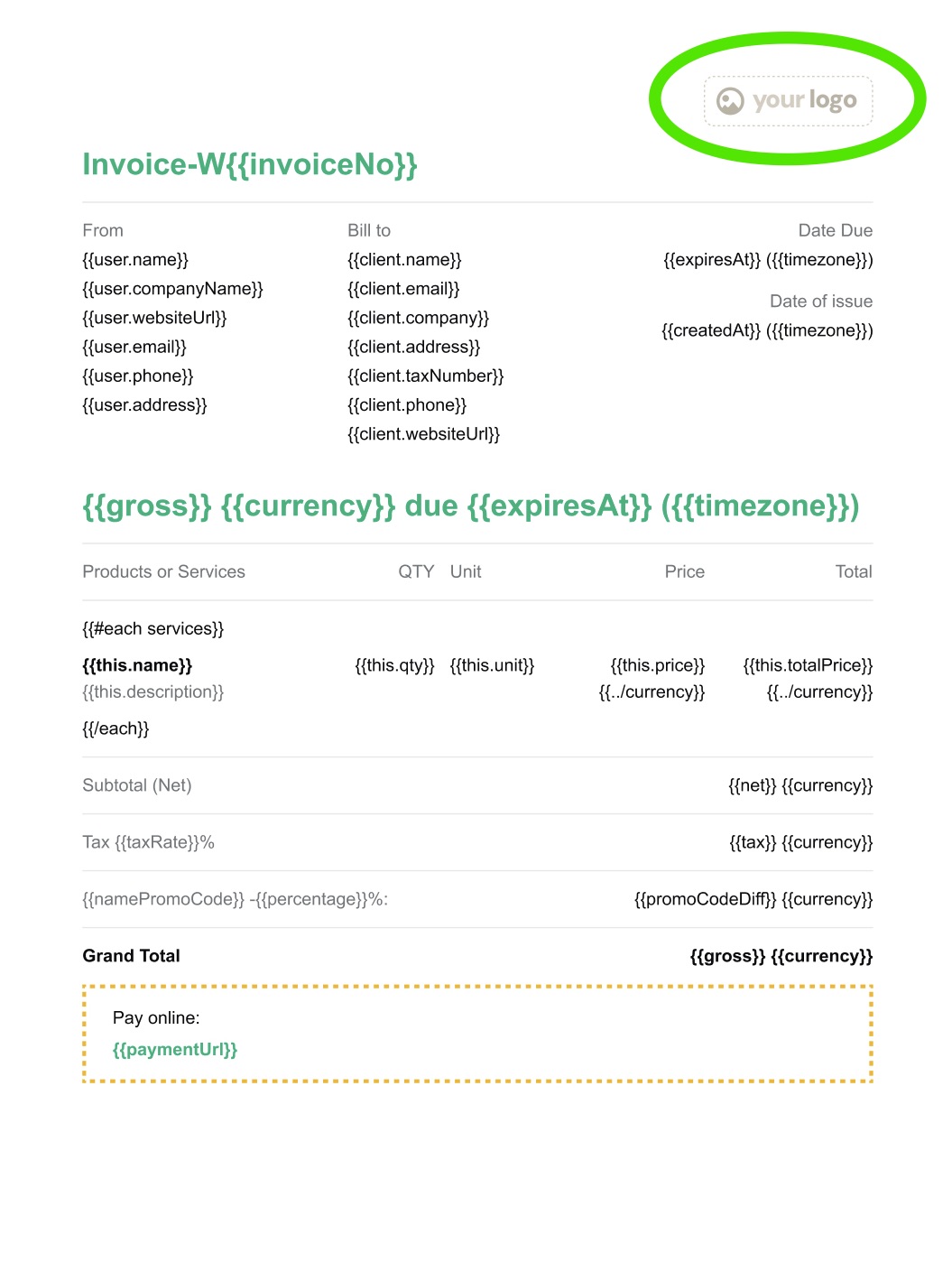Navigating the Gig Economy: Strategies for Freelance Success

Are you ready to take control of your career and dive into the world of freelancing? The gig economy is booming, offering unprecedented opportunities for independent workers like you. But navigating this new landscape can be challenging. From finding steady work to managing your finances and building a standout portfolio, there's a lot to consider. In this guide, you'll discover essential strategies for thriving in the gig economy. Whether you're a seasoned freelancer or just starting out, you'll learn how to overcome common hurdles, maximize your earning potential, and achieve the work-life balance you've always dreamed of. Get ready to unlock your full potential in the exciting world of freelance work.
Embracing the Gig Economy: Opportunities and Challenges
The gig economy has revolutionized the way we work, offering unprecedented flexibility and autonomy. As a freelancer, you're at the forefront of this shift, navigating a landscape rich with both opportunities and challenges.
Freedom and Flexibility
One of the most alluring aspects of freelancing is the freedom to choose your projects and set your own schedule. This flexibility allows you to achieve a better work-life balance, tailoring your career to fit your lifestyle rather than the other way around. You can work from anywhere, be it a cozy home office or a beachside café, opening up a world of possibilities for digital nomads and location-independent professionals.
Financial Opportunities and Risks
The gig economy offers the potential for higher earnings, especially for skilled professionals. You're not limited by a fixed salary and can take on multiple clients or projects simultaneously. However, this financial freedom comes with its own set of challenges. Irregular income streams and the responsibility of managing your own finances require a solid understanding of financial management and budgeting.
Continuous Learning and Adaptation
To thrive in the gig economy, you must be willing to continuously update your skills and adapt to changing market demands. This environment rewards those who are proactive in their professional development and portfolio building. While this constant evolution can be demanding, it also presents exciting opportunities for personal and professional growth.
Networking and Self-Promotion
As a freelancer, you're not just a service provider – you're also your own marketing department. Building a strong network and effectively promoting your services are crucial for success. This aspect of gig work can be challenging for those who aren't naturally inclined towards self-promotion, but it's an essential skill to develop in this competitive landscape.
By understanding and embracing these opportunities and challenges, you can position yourself for success in the dynamic world of freelancing and the gig economy.
Strategies for Finding Freelance Gig Work

In the ever-evolving gig economy, finding consistent work can be challenging. However, with the right approach, you can build a thriving freelance career. Here are some effective strategies to help you secure gig work and establish yourself in your chosen field.
Leverage Online Platforms
The digital landscape offers numerous opportunities for freelancers. Utilize popular freelance marketplaces like Upwork, Fiverr, and Freelancer.com to connect with potential clients. These platforms allow you to showcase your skills, build a portfolio, and compete for projects across various industries. Remember to optimize your profile with relevant keywords to improve visibility.
Network Strategically
Networking remains a powerful tool in the freelance world. Attend industry events, join professional associations, and participate in online forums related to your niche. Building relationships with other professionals can lead to referrals and collaborative opportunities. Don't underestimate the power of word-of-mouth marketing in the gig economy.
Develop a Strong Online Presence
In today's digital age, having a robust online presence is crucial for freelance success. Create a professional website that showcases your portfolio, highlights your expertise, and provides easy ways for potential clients to contact you. Maintain active social media profiles, particularly on LinkedIn, to expand your network and share your work.
Specialize and Stand Out
While versatility is valuable, specializing in a particular niche can help you stand out in a crowded market. Focus on developing expertise in a specific area and market yourself as a specialist. This approach can lead to higher-paying gigs and repeat clients who value your specialized skills.
By implementing these strategies, you'll be well-equipped to navigate the gig economy and find freelance work that aligns with your skills and career goals. Remember, success in freelancing often requires a balance of proactive marketing, continuous skill development, and effective financial management.
Building a Stellar Freelance Portfolio

In the gig economy, your portfolio is your most powerful marketing tool. It's the showcase of your skills, experience, and unique value proposition. Let's explore how to create a portfolio that will make you stand out from the crowd and attract high-quality clients.
Curate Your Best Work
When building your portfolio, quality trumps quantity. Select your most impressive projects that align with the type of work you want to attract. Remember, each piece should demonstrate your expertise and creativity in your chosen field.
Choose diverse projects to showcase your versatility
Include detailed descriptions of your role and the project outcomes
Highlight any measurable results or client testimonials
Tell Your Story
Your portfolio is more than just a collection of work samples – it's an opportunity to share your professional journey. Craft a compelling narrative that explains your passion, your approach to work, and what sets you apart in the freelancing world.
Keep It Fresh and Relevant
The gig economy is dynamic, and your portfolio should reflect that. Regularly update your portfolio with your latest and most relevant work. This not only shows potential clients that you're active and in-demand but also demonstrates your growth and adaptability as a professional.
Optimize for Online Visibility
In today's digital age, your online presence is crucial. Ensure your portfolio is easily discoverable by:
Using SEO keywords relevant to your skills and industry
Creating a user-friendly, mobile-responsive design
Linking to your portfolio from your social media profiles and professional networks
Remember, your portfolio is a living document of your professional growth. By consistently refining and updating it, you'll be well-positioned to thrive in the competitive landscape of freelancing and maintain a healthy work-life balance.
Managing Finances as a Gig Worker
As a freelancer in the gig economy, mastering financial management is crucial for long-term success and stability. Here are some key strategies to help you navigate the financial challenges of gig work:
Track Your Income and Expenses
Keeping meticulous records of your earnings and expenditures is essential for financial management in the gig economy. Use digital tools or spreadsheets to log every penny that comes in and goes out. This practice will give you a clear picture of your financial health and help you make informed decisions about your work and spending habits.
Set Aside Money for Taxes
Unlike traditional employees, gig workers are responsible for paying their own taxes. A good rule of thumb is to set aside 25-30% of your income for taxes. Consider opening a separate savings account specifically for this purpose to avoid any surprises come tax season.
Create a Budget and Emergency Fund
Freelancing often comes with irregular income, making budgeting crucial for maintaining work-life balance. Allocate your earnings into categories like essentials, savings, and discretionary spending. Additionally, build an emergency fund that covers at least 3-6 months of expenses to cushion against lean periods in your gig work.
Diversify Your Income Streams
To mitigate financial risks, consider diversifying your income sources. This could mean taking on various types of gig work, developing passive income streams, or even investing in low-risk financial instruments. A diversified portfolio can provide more stability in the unpredictable world of freelancing.
Invest in Your Future
Don't neglect long-term financial planning. As a gig worker, you're responsible for your own retirement savings. Consider setting up an Individual Retirement Account (IRA) or a Solo 401(k) to ensure you're prepared for the future while potentially reducing your tax burden now.
By implementing these financial management strategies, you'll be better equipped to thrive in the gig economy and build a sustainable freelance career.
Maintaining a Healthy Work-Life Balance
In the fast-paced gig economy, freelancers often find themselves working around the clock. However, maintaining a healthy work-life balance is crucial for long-term success and well-being. Here are some strategies to help you achieve equilibrium in your freelance career.
Set Clear Boundaries
Establishing clear boundaries between work and personal life is essential. Create a dedicated workspace and stick to defined working hours. Communicate these boundaries to clients and family members to minimize interruptions and maintain focus during work time.
Practice Time Management
Effective time management is key to balancing your workload and personal life. Use productivity tools to track your time and prioritize tasks. Break larger projects into smaller, manageable chunks, and allocate specific time slots for different activities throughout your day.
Prioritize Self-Care
Don't neglect your physical and mental health in pursuit of freelancing success. Regular exercise, a balanced diet, and sufficient sleep are crucial for maintaining energy levels and creativity. Schedule time for hobbies, relaxation, and social activities to recharge and avoid burnout.
Learn to Say No
In the gig economy, it's tempting to accept every opportunity that comes your way. However, overcommitting can lead to stress and poor work quality. Be selective about the projects you take on, focusing on those that align with your skills, interests, and financial goals.
Embrace Flexibility
One of the perks of freelancing is the flexibility it offers. Take advantage of this by structuring your workday around your most productive hours and personal commitments. This flexibility can help you achieve a better work-life balance while still meeting client deadlines and delivering high-quality work.
By implementing these strategies, you can navigate the challenges of the gig economy while maintaining a fulfilling personal life. Remember, a well-balanced freelancer is often a more productive and successful one.
Mastering the Art of Networking in the Gig Economy

In the fast-paced world of freelancing, your network can be your most valuable asset. As a gig worker, cultivating meaningful professional relationships is crucial for long-term success and maintaining a healthy work-life balance. Let's explore some effective strategies to expand your network and leverage it for career growth in the gig economy.
Building Your Digital Presence
Your online presence is often the first impression potential clients and collaborators will have of you. Optimize your social media profiles, especially on professional platforms like LinkedIn, to showcase your skills and portfolio. Regularly share insights, engage with industry discussions, and demonstrate your expertise to attract opportunities and build credibility in your field.
Leveraging Virtual Networking Events
The digital age has transformed networking, making it more accessible than ever. Attend virtual conferences, webinars, and industry meetups to connect with like-minded professionals. These events offer valuable opportunities to learn, share experiences, and potentially find new gig work. Don't hesitate to reach out to speakers or fellow attendees for follow-up conversations.
Collaborating with Fellow Freelancers
In the gig economy, collaboration often trumps competition. Consider partnering with other freelancers whose skills complement yours. This approach not only expands your service offerings but also opens doors to new client networks. Platforms like Workee.net can be excellent resources for finding potential collaborators and accessing guidance on effective partnership strategies.
Nurturing Long-Term Relationships
Networking isn't just about making new connections; it's about nurturing existing ones. Regularly check in with past clients, mentors, and colleagues. Share updates on your work, offer assistance when possible, and stay informed about their projects. These ongoing interactions can lead to repeat business, referrals, and valuable insights for your financial management and career development.
Remember, successful networking in the gig economy is about creating genuine, mutually beneficial relationships. By consistently applying these strategies, you'll build a robust network that supports your freelancing journey and contributes to your overall success in the dynamic world of gig work.
Navigating Taxes and Legal Considerations for Freelancers

As a freelancer in the gig economy, understanding your tax obligations and legal responsibilities is crucial for long-term success and financial stability. Here's what you need to know:
Understanding Self-Employment Taxes
When you work in the gig economy, you're typically considered self-employed. This means you're responsible for paying both the employee and employer portions of Social Security and Medicare taxes. Set aside roughly 15.3% of your income for these self-employment taxes, in addition to your regular income tax.
Quarterly Estimated Tax Payments
Unlike traditional employees, freelancers don't have taxes automatically withheld from their paychecks. To avoid penalties, make quarterly estimated tax payments to the IRS. This helps maintain a healthy cash flow and prevents a large tax bill at year-end.
Tracking Income and Expenses
Proper financial management is key for freelancers. Keep meticulous records of all income and business-related expenses. This not only helps at tax time but also gives you a clear picture of your financial health. Consider using accounting software designed for freelancers to streamline this process.
Legal Considerations for Freelancers
Protect yourself legally by using contracts for all client work. These should clearly outline the scope of work, payment terms, and ownership of intellectual property. Consider forming an LLC or other business entity to separate personal and business assets, potentially offering additional legal protection.
Maintaining Work-Life Balance
While not strictly a legal consideration, maintaining a healthy work-life balance is crucial for long-term success in freelancing. Set clear boundaries with clients, establish regular working hours, and make time for self-care and personal pursuits. This balance will help you avoid burnout and sustain your freelance career.
By addressing these tax and legal considerations, you'll build a solid foundation for your freelance career, allowing you to focus on growing your business and building your portfolio in the dynamic gig economy.
Continuous Learning and Skill Development for Gig Workers

In the ever-evolving gig economy, staying relevant and competitive is crucial for freelancing success. To thrive in this dynamic landscape, you must prioritize continuous learning and skill development. Here's how you can stay ahead of the curve:
Embrace Lifelong Learning
The gig economy demands adaptability and versatility. Make it a habit to dedicate time each week to learning new skills or improving existing ones. This could involve taking online courses, attending webinars, or participating in industry workshops. By consistently upgrading your skillset, you'll enhance your portfolio and increase your marketability to potential clients.
Stay Abreast of Industry Trends
To maintain work-life balance while keeping up with industry developments, set aside time to read industry publications, follow thought leaders on social media, and participate in professional forums. This practice will help you anticipate market shifts and adapt your services accordingly, ensuring your relevance in the ever-changing gig landscape.
Diversify Your Skill Set
While specialization is valuable, having a diverse skill set can open up more opportunities in the gig economy. Consider developing complementary skills that enhance your primary expertise. For example, if you're a content writer, learning basic graphic design or SEO can make you a more attractive candidate for comprehensive projects.
Leverage Peer Learning
Networking isn't just about finding gig work; it's also an excellent opportunity for skill development. Join professional associations or online communities related to your field. Engaging with peers can expose you to new perspectives, techniques, and tools that can enhance your freelancing career.
Practice Financial Management
As you invest in your professional growth, don't neglect your financial management skills. Understanding budgeting, taxes, and pricing strategies is crucial for long-term success in the gig economy. Consider taking courses on financial planning for freelancers to ensure your business remains sustainable as you grow your skills and client base.
Gig Economy FAQs: Answering Your Burning Questions
What exactly is the gig economy?
The gig economy refers to a labor market characterized by short-term contracts, freelance work, and temporary positions. It's a system where independent workers engage in flexible, project-based jobs rather than traditional full-time employment. This model has gained significant traction in recent years, reshaping how we think about work and career paths.
How do I find gig work?
Finding gig work requires a proactive approach. Start by leveraging online platforms specifically designed for freelancers and gig workers. Build a compelling online presence, showcasing your skills and portfolio. Network extensively, both online and offline, to uncover hidden opportunities. Don't underestimate the power of word-of-mouth referrals in the gig economy.
How can I maintain work-life balance as a freelancer?
Achieving work-life balance in the gig economy can be challenging but not impossible. Set clear boundaries between work and personal time. Establish a dedicated workspace and stick to a schedule. Learn to say no to projects that might overwhelm you. Remember, one of the perks of freelancing is flexibility – use it wisely to create a harmonious blend of work and life.
What about financial management in the gig economy?
Financial management is crucial for freelance success. Start by separating personal and business finances. Create a budget that accounts for irregular income and set aside money for taxes. Build an emergency fund to cover lean periods. Consider working with a financial advisor who understands the unique challenges of the gig economy to help you make informed decisions about your finances.
Conclusion
As you embark on your journey in the gig economy, remember that success as a freelancer requires adaptability, perseverance, and strategic planning. By implementing the strategies outlined in this article—from diversifying your income streams to prioritizing work-life balance—you'll be better equipped to thrive in this dynamic landscape. Stay informed about industry trends, continuously refine your skills, and nurture your professional network. While challenges may arise, the gig economy offers unprecedented opportunities for flexibility, growth, and personal fulfillment. With the right mindset and tools at your disposal, you can build a rewarding freelance career tailored to your unique goals and aspirations. Embrace the journey, and let your entrepreneurial spirit guide you toward success in the ever-evolving world of gig work.
Embracing the Digital Nomad Lifestyle
As the gig economy continues to gain momentum, an increasing number of freelancers are embracing the digital nomad lifestyle, leveraging technology to work from anywhere in the world. This trend presents both opportunities and challenges for those seeking location independence.
The Allure of the Digital Nomad Lifestyle
For many, the prospect of untethering from a traditional office setting and exploring new destinations while earning a living is an enticing proposition. The digital nomad lifestyle offers the freedom to design a work-life integration that aligns with personal values and aspirations. Whether it's soaking up the vibrant culture of a bustling city or finding solace in a remote, natural setting, digital nomads have the flexibility to choose their environment and immerse themselves in diverse experiences.
Overcoming the Challenges of Remote Work
While the digital nomad lifestyle promises freedom and adventure, it also requires careful planning and adaptability. Maintaining productivity and focus in constantly changing environments can be a hurdle. Establishing a consistent routine and creating a dedicated workspace, even if temporary, can help mitigate distractions. Additionally, managing time zones, communication channels, and cultural nuances when collaborating with clients or team members across different regions is crucial.
Building a Sustainable Digital Nomad Career
To thrive as a digital nomad, it's essential to cultivate a robust professional network that transcends geographic boundaries. Leveraging online communities, attending industry events, and collaborating with like-minded individuals can open doors to new opportunities and foster lasting connections. Furthermore, diversifying your skill set and staying abreast of emerging technologies and industry trends can enhance your marketability and ensure long-term career sustainability in the ever-changing gig economy.


